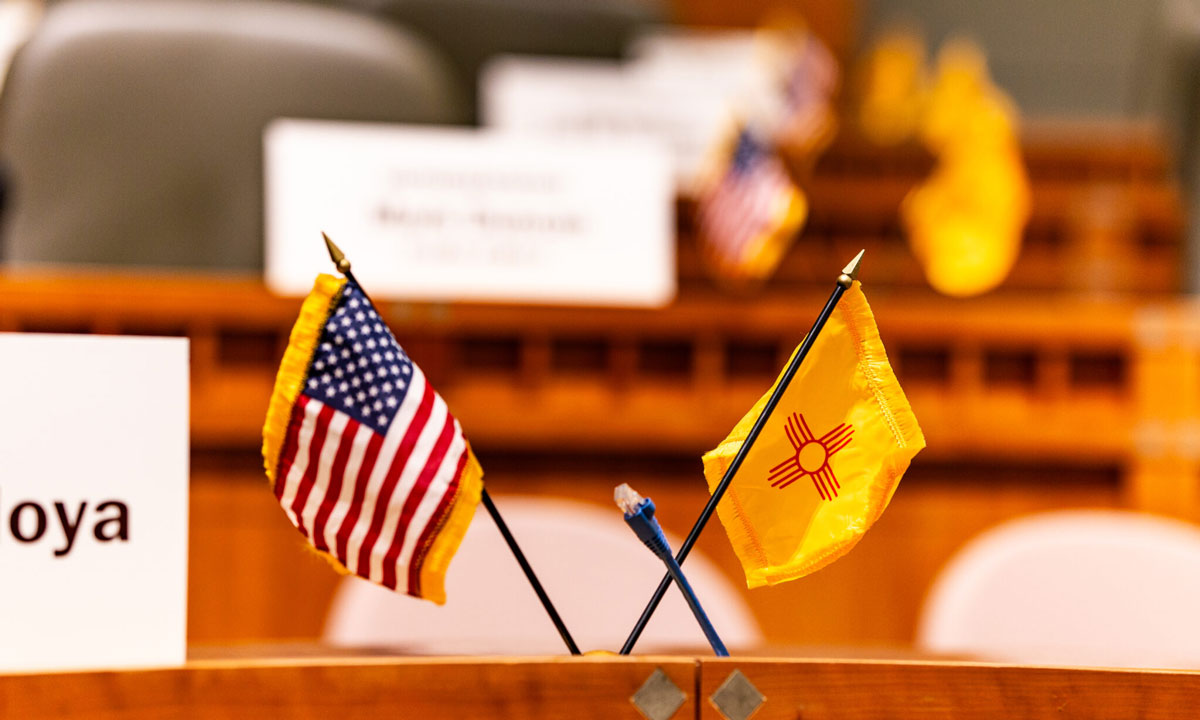New Mexico Lawmakers Prioritize Career Technical Instruction in Ed Budget
New Mexico’s public education secretary Arsenio Romero also outlined plans to embed structured literacy within all New Mexico schools.

Get stories like this delivered straight to your inbox. Sign up for The 74 Newsletter
At a joint budget session of the House and Senate education committees on Monday, lawmakers made clear their intent to prioritize literacy, staff shortages, attendance, pay increases, career technical education and improving outcomes for students.
Analysts with the New Mexico Legislative Education Study Committee and the Legislative Finance Committee proposed the following investments for such initiatives:
- $46.2 million for career technical education
- $25 million to raise the minimum salary for all school personnel to $30,000 per year
- $3 million for planning and design for a statewide literacy center
- $30 million in flexible funds for literacy, community schools and innovative projects
- $15 million for the Public Education Department’s education fellows program
- $15 million for attendance programs
The $3 million for the literacy center is far below the governor’s request for $30 million.
New Mexico’s public education secretary Arsenio Romero also outlined plans to embed structured literacy within all New Mexico schools, something that is in line with Gov. Michelle Lujan Grisham’s priorities for the 2024 session.
“This has been proven time and time again to be the game-changer we need,” he said. “If we can have students become confident, competent readers at their grade level it’s going to have a positive effect on every other core area within their education but it’s also going to have a benefit for them their entire lives.”
He also requested $94.5 million for increases to teacher salaries and called on legislators to boost funding for the educator fellows program. The program provides coaching, hands-on experience and financial support to students who want to become certified educators.
“These teachers now that are in pre-service programs are getting that experience now so when they get their own classrooms they’re ready to roll and be successful, year one, day one,” Romero said.
Lawmakers expressed strong, bipartisan support for career technical education, calling it one of the biggest factors in student success.
Senate Education Committee Chair William Soules (D-Las Cruces) said he wanted to ensure there was sufficient funding for career technical education.
“When we are flush with money, education is the best place to put the extra money, not a place to try to do things on the cheap or see how much we can get for how little – but how much can we put into good programs that are going to make a difference,” Soules said.
Extended school hours drew bipartisan criticism from lawmakers concerned about smaller, rural schools. The New Mexico Public Education Department recently proposed a rule that would require all schools to have a minimum of 180 instruction days, forcing some schools to go from a four-day week to a five-day week.
“What happened to local control? Why do we have a school board when y’all are mandating sitting up here in Santa Fe that we are going to increase our school days?” said Rep. Candy Spence Ezzell (R-Roswell) “I am appalled by what’s happening in our schools. Our schools are excelling when there’s a smaller student-to-teacher ratio. It’s not going to improve just by adding more days on it.”
Ezzell said that additional costs for fuel, meals and utilities for rural schools to add an extra day would “break” small schools.
Some lawmakers expressed concern about making wise investments to support struggling students and meeting the guidelines in the Yazzie-Martinez ruling, a landmark public education reform case in New Mexico.
Rep. Yanira Gurrola (D-Albuquerque) expressed concern that there was not enough funding for bilingual education in any of the budget proposals. Legislative analysts found that there were at least 4,000 educators in New Mexico with bilingual certifications who were not teaching bilingual classes because of inadequate pay for an intense workload.
Gurrola introduced House Bill 39 this session which would create pipelines between the state’s colleges, universities and tribal colleges to bring bilingual educators into K-12 schools. She said in the committee meeting that it’s not enough for someone to be certified. It requires funding and resources for bilingual programs to be successful.
“Some of the schools who were presented to us as schools that beat the odds and were successful, they were trained in structural literacy and they were supplemented by other trainings to meet the needs of the diverse population,” Gurrola said.
Rep. Patricia Roybal Caballero (D-Albuquerque) said she wanted to see better data collecting and metrics to show skeptics where to invest money to comply with Yazzie-Martinez and help legislators make better decisions about education funding to support the state’s diverse student population.
“We’re not at risk. We’re exceptional. We come to the classroom exceptional, because of our language, because of our culture, because of what we bring to the table,” Roybal Caballero said. “Everybody else doesn’t understand that … We need to stop doing business as usual, which is all of this, and create something different.”
Get stories like these delivered straight to your inbox. Sign up for The 74 Newsletter

;)